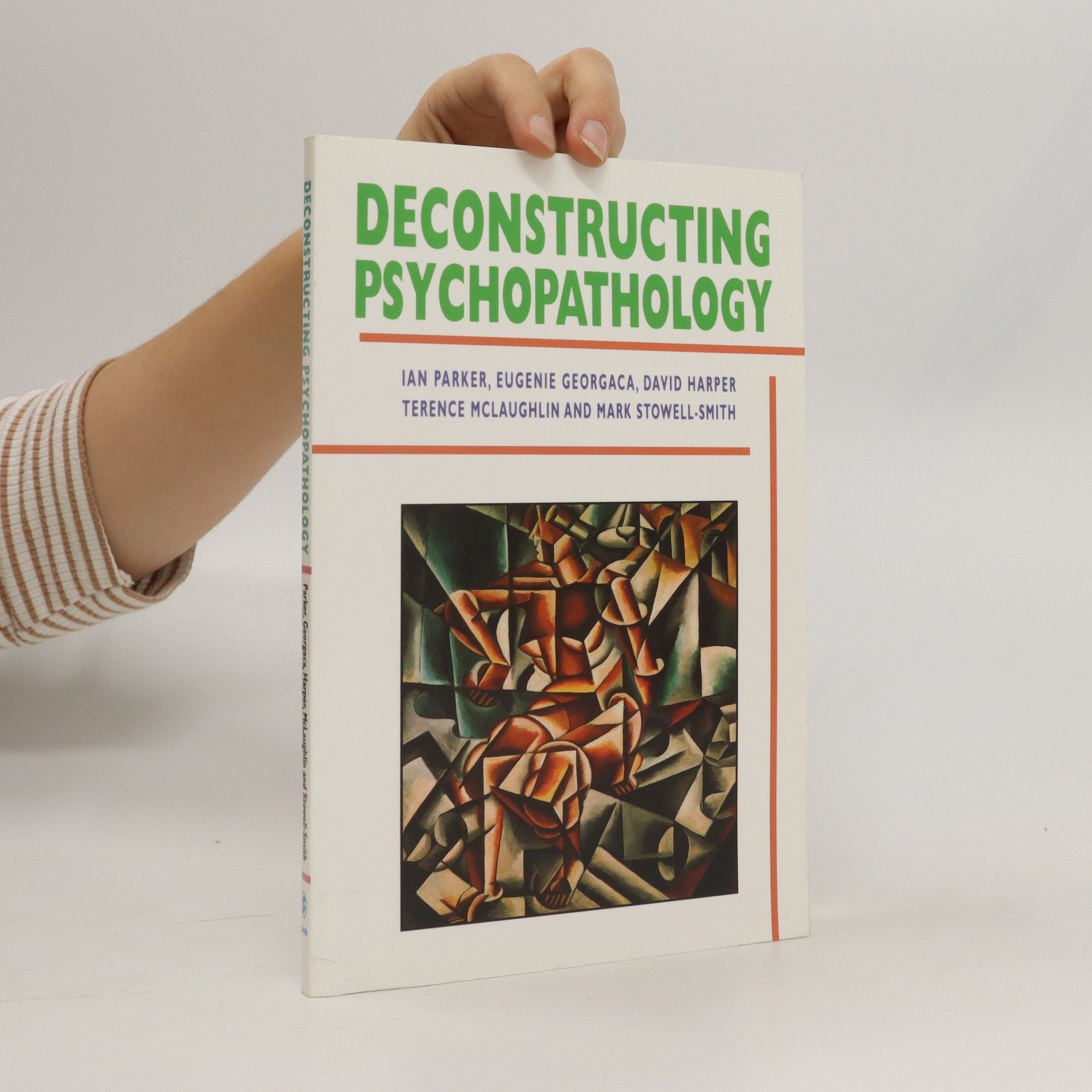Focusing on the intersection of cinema and revolutionary politics, the book delves into the narratives surrounding twenty-five Trotskyist organizations in England. It explores key cinematic elements that reveal the complexities of purges, splits, and cult favorites within these groups. By examining how film has shaped and reflected the history of the English Left, the work offers a unique perspective on revolutionary Marxism in the context of popular culture.
Ian Parker Books
Ian Parker, a British psychologist, stands as a key proponent of three distinct critical traditions within his field. His work has served as a vital guide for researchers seeking alternatives to mainstream, laboratory-based psychology. Parker champions discursive analysis, Marxist psychology, and psychoanalysis, adapting each to emphasize ideology and power. This unique approach consistently sparks intense debate, challenging both conventional psychology and other critical perspectives.






"... well-written and seems to be at a level which would be graspable by most undergraduate and maybe A level students - without neglecting too much the complexities of the use of qualitative techniques ... These characteristics coupled with the fact that each of the authors is an expert in using the particular qualitative techniques they discuss, means that the book can be heartily welcomed."Psychology Teaching Review This book is a collaborative production, based on the experiences of the co-authors in presenting a course over many years in Qualitative Methods to MSc students. All the team are members of staff of the Department of Psychology and Speech Pathology at the Manchester Metropolitan University, and have a wealth of experience in teaching and using qualitative methods. This is not an edited book; the authors have drafted particular chapters, but the team has collectively discussed, reworked and rewritten the text to produce a coherent review and guide to the area. This research guide is designed to be an introductory text to qualitative methods, intended for advanced undergraduate and postgraduate students. As well as furnishing an understanding of the assumptions underlying such research methods, the book is intended to present a practical guide as to how to carry out qualitative investigations, and in addition to provide the basis for a critical evaluation of these methods.
Radical Psychoanalysis
- 86 pages
- 4 hours of reading
This crisis-ridden world is having disastrous effects on the climate, on our bodies and on our internal worlds, on how we feel and try to respond, on how we panic and on how we act collectively. Psychoanalysis can be part of this collective political response. Ian Parker shows how personal struggle can be linked to political struggle so we confr
This introduction to discourse research offers a systematic overview of key theoretical debates, emphasizing a realist perspective. It addresses postmodernity and establishes criteria for identifying discourses, making it a significant contribution to the field since its 1992 publication. Ian Parker's work stands out as one of the early texts to tackle these complex issues comprehensively.
Psychoanalysis, Clinic and Context
Subjectivity, History and Autobiography
- 208 pages
- 8 hours of reading
Exploring the enigmatic nature of psychoanalysis, Ian Parker shares his personal journey from trainee to analyst, shedding light on prevalent misconceptions that often mislead. He also provides a comprehensive overview of the significant debates currently shaping the field, offering readers a deeper understanding of both the practice and its complexities.
Psychology through Critical Auto-Ethnography
Academic Discipline, Professional Practice and Reflexive History
- 342 pages
- 12 hours of reading
An insider account explores the discipline of psychology, highlighting its limitations and the key debates currently shaping the field globally. It critically examines the problematic role psychology plays as a global phenomenon, offering insights into the complexities and challenges faced within the discipline.
Socialisms
- 192 pages
- 7 hours of reading
Deconstructing Psychopathology
- 176 pages
- 7 hours of reading
Serves as a critique of the institutions and presuppositions that underlie the study of 'psychopathology'. This book is useful for students and practitioners who are working to understand mental health and distress. It analyzes the notion of 'psychopathology' as a conventional term in psychology through the language which holds it in place.
Psychoanalyse und Revolution
Kritische Psychologie für Befreiungsbewegungen
- 160 pages
- 6 hours of reading
Hier geht es um die Wechselbeziehung zwischen der oft krisenhaften äußeren Wirklichkeit und unserem "inneren" Leben. Zu gern werden Probleme, die uns handlungsunfähig machen, auf die Ebene individueller Psychologie reduziert. Wie können wir solche Probleme politisieren? "Psychoanalyse und Revolution" wendet sich an Personen und Gruppen, die gegen eine ausbeuterische und entfremdende Realität kämpfen. Die Beziehung zwischen persönlicher "Innenwelt" und gesellschaftlicher "äußerer" Welt ist für Befreiungsbewegungen höchst relevant. Das Buch steht der Psychoanalyse weder unkritisch noch ablehnend gegenüber, sondern es macht ihre Kernkonzepte - das Unbewusste, Wiederholung, Trieb, Übertragung - politisch nutzbar, um die Welt zu verändern. Quelle: Verlag
